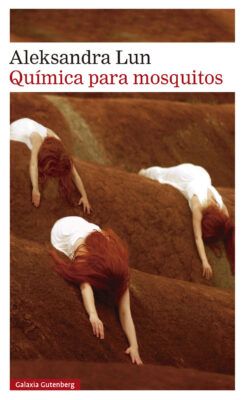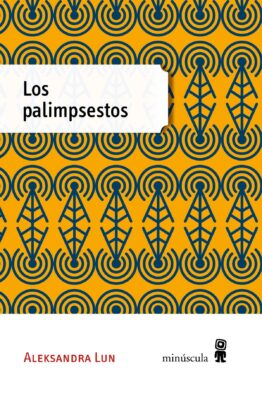
Química para mosquitos
» LIV Premio Internacional de Novela Ciudad de Barbastro
In this book, Aleksandra Lun delves, with an astonishingly intimate tone, into recent history and into the scars of the family nucleus and of society, to tell us a story full of mystery and suspense, of uncertainty and promise, which speaks to us of freedom and of the brevity of the time we spend here.
In the summer of 1977, a girl is born in a mining town in a country under Soviet rule. In the block of flats where she lives with her family, all employees of the state chemical plant, she observes with attention and strangeness the routines of a planned economy. Sometimes a tram takes them to the outskirts, where they cultivate a plot of land allotted by the government and dig a shelter from a diffuse threat that the girl senses. Once a year, a train takes her away from the ugliness of the city to a farm in the village. There, nature sets the rhythm of the days, animals work, people struggle to survive and insects tell stories of the past. Life passes between the city and the countryside while the girl senses that there is another place, a place of which she has a pale and intermittent memory. One day she discovers that she is not the only one who knows this place: in the block of flats someone else shares her secret. The originality of this novel is in keeping with a literary tradition that delves, through the apparent simplicity of a falsely childish voice, into the great contemporary themes.
